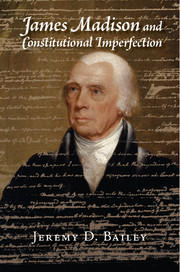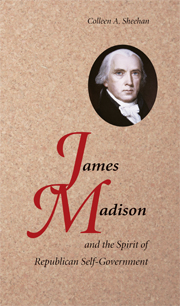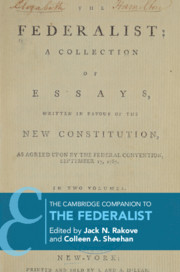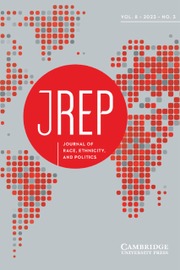James Madison and Constitutional Imperfection
This book presents a provocative account of James Madison's political thought by focusing on Madison's lifelong encounter with the enduring problem of constitutional imperfection. In particular, it emphasizes Madison's alliance with Thomas Jefferson, liberating it from those longstanding accounts of Madisonian constitutionalism that emphasize deliberation by elites and constitutional veneration. Contrary to much of the scholarship, this book shows that Madison was aware of the limits of the inventions of political science and held a far more subtle understanding of the possibility of constitutional government than has been recognized. By repositioning Madison as closer to Jefferson and the Revolution of 1800, this book offers a reinterpretation of one of the central figures of the early republic.
- Provides a new interpretation of Madison's political thought by emphasizing Madison's proximity to Jefferson
- Offers a controversial reflection on the difficulties of deliberation in constitutional politics
- Offers the first account of constitutional imperfection in studies of the early republic
Reviews & endorsements
"Jeremy Bailey’s remarkable and transformative book does what great scholarship always does: forces us to reconceptualize and reconsider categories we have long taken for granted. By carefully and systematically dislodging James Madison’s evolving thought from what he calls the "Madisonian Constitutionalism" that has to this point set the boundaries of our conversation, Bailey has given us a considerably more complex story and made it impossible to read Madison in the same old way again."
Brian Steele, author of Thomas Jefferson and American Nationhood
Product details
September 2015Hardback
9781107121607
196 pages
229 × 152 × 13 mm
0.43kg
1 table
Available
Table of Contents
- 1. Madison and constitutional imperfection
- 2. Appeals to tradition
- 3. Appeals to elites
- 4. Public opinion before parties
- 5. The turn to public opinion
- 6. Appeals to the people
- 7. Appeals to text and history
- 8. 'Take care of me when dead'.









